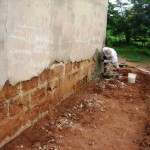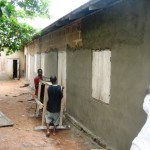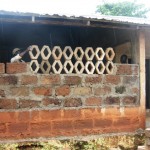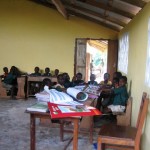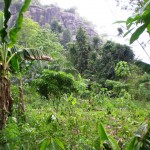This project took place in Bobikuma is about 45 minutes drive from Agona Swedru. Bobikuma is mainly supported by farming. This project was divided into two phases due to inadequate funding. The first phase was completed in February 2010 and the final phase was completed in June 2010. The goal for the first phase was to address the most important problems that posed the greatest threat to the students and teachers. This included replacing some sections of the roof with proper metal sheets and to fix the floor of one of the classrooms. In the end, more than half of the roof of the school had to be removed and replaced with new metal sheets. Replacing the roof was extremely costly due to the price of galvanized metal and the labour involved in replacing the roof. Volunteers assisted in several ways to help cut down costs. Replacing the roof of two classrooms and repairing of the floor of one classroom was accomplished in four working days. For the first phase, the total expenses on the materials and salary for workers amounted to 2200.00 GHC.
The date for the second phase was set, but was constantly delayed because of financial shortages. On June 1st, 2010, the budget was redesigned based on the funds available. This phase was to address the entire school block in continuation of the first phase. Once the plans were reorganized, all the materials were purchased and transported to the project site at once. Most of the workers from the first phase were re-employed. All of the cement work was completed in the first 10 days. BFG finished the project by planting flowers around the school – this was done for aesthetic purposes. Both volunteers and paid workers worked together to complete the restoration at the stipulated time. The remaining 5 days were allotted for painting and decorating classroom block. This was done by volunteers. The total amount spent on this phase was 4295.00 GHC.
This entire restoration project was completed in a total of 21 working days. A few problems were encountered during this project, involving financial issues with some workers during the first phase and weather problems during the second phase.



